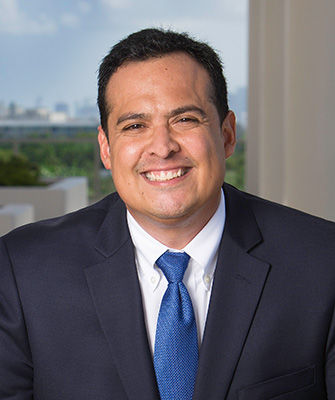The current global pandemic continues to disrupt our lives. But the pandemic has also inspired some pleasant surprises in the legal profession, ranging from humorous ways of engaging with law students to inventive ways of improving access to justice.
I want to highlight a particularly pleasant surprise for civil procedure scholars—the Civil Procedure Unavailability Workshop (the “Workshop”), a virtual workshop organized by Suzanna Sherry and Adam Steinman that has met weekly this summer and will continue monthly in the fall. (Full disclosure—Adam Steinman is the co-editor of the Courts section of JOTWELL, and I presented at the Workshop in early June). A full list of previous and upcoming presentations can be found here.
Unlike a typical law-school workshop, the Workshop does not necessarily focus on a work-in-progress. Instead, each presenter discusses a topic of interest to civil procedure scholars. The topics have covered a wide terrain of civil procedure—e-discovery, anti-SLAPP suits, the Erie doctrine, protective orders, class actions, personal jurisdiction, and even the bar exam, just to name a few recent topics. For the first half of each session one of the moderators asks the presenter two-to-four questions about the topic. These initial questions introduce the topic for nonexperts and show the topic’s relevance to current trends in scholarship and to curricular needs. The second half is a fun free-for-all where participants ask the presenter questions about the topic.
The participants are the best part of the workshop and have shown the promise of technologies like Zoom in fostering scholarly exchange. To provide some context: The typical workshop is conducted in a room at a law school, with the presenter speaking to a small group of approximately 20 physically present participants. The presenter may be from a different institution but almost all of the participants in the audience are affiliated with the law school (or perhaps larger university) hosting the workshop. For obvious reasons, the pandemic’s social-distancing requirements have made this typical set-up impossible. Moreover, the Workshop’s use of Zoom cannot replicate some of the advantages of face-to-face contact, which many have been pointed out.
Nevertheless, Zoom has opened up possibilities that could not be achieved in the typical set-up. For example, Zoom has allowed participants to attend from anywhere in the world, at a scale that would be impossible to replicate at many law schools. As a result, the Workshop has approximately 226 registered participants and typically 75-to-125 active participants for each session. Unlike the audience at a typical law school workshop, the Workshop participants are not all from the same institution. Indeed, although the Workshop is limited to law professors, the moderators have permitted a few nonacademics to participate, which has enhanced the already great discussions. One participant and presenter has been Chief Judge Lee H. Rosenthal of the Southern District of Texas, a former chair of both the Standing Committee on Rules of Practice and Procedure and the Advisory Committee on the Federal Rules of Civil Procedure.
The civil procedure scholarly community is a particularly friendly and generous one, which has made it easy for participants to meaningfully interact with each other without any fear of judgment. Indeed, one unintended feature I have enjoyed is participants, completely unprompted, acknowledging and engaging with the scholarly work of other Workshop participants. I take these exchanges as proof that scholarship does, in fact, get read!
Zoom also allows for different interactions among participants that would be hard to replicate in the typical law school workshop. One successful feature is the “chat” function, which allows participants to type questions or comments for all participants to read and respond to, supplementing points being made by the speaker or the participants. Based on my own observations, the “chat” questions have allowed participants who would normally hesitate to speak at a typical workshop to make their thoughts heard. The moderators have become adept at integrating chat questions into the queue of live questions, resulting in a great mix of questions that could not be easily created in the typical law school workshop. As an added bonus participants can download the “chat” to preserve not only all of the insightful questions asked, but the comments, links, citations, and other ideas that did not require a response from the presenter.
Zoom’s “chat” function also serves an important community-building role. One downside to the typical law school workshop is that it prevents participants from socializing, as attention is focused solely on the presenter. “Chat” does allow participants to send private messages to specific participants, allowing me, for example, to say a quick hello to colleagues I have not interacted with in years. It is the equivalent of passing a note during class, although (I hope) far less rude. In addition, the “Brady Bunch” layout of the speakers and participants makes it easier to see colleagues and feel less alone. Indeed, that names are published under everyone’s talking head makes it easier to follow up with participants after each session, something that can be a bit of a challenge in the real world when name tags are unavailable or illegible.
Finally, I want to point out a small but important feature of the Workshop. The moderators make a point of staying after the “official” end of each session to allow participants to continue the conversation with the presenter. This allows those participants who are particularly interested in the topic to have a more unstructured back-and-forth with the presenter. I have stayed for at least one of these sessions and they have been a lot of fun, mimicking at times a boisterous lunch with a small group of friends.
This pandemic has not created many things I have liked lots, but I have certainly enjoyed the Unavailability Workshop. I hope that it does not end with the pandemic and that it inspires other ways of bringing civil procedure enthusiasts together.








